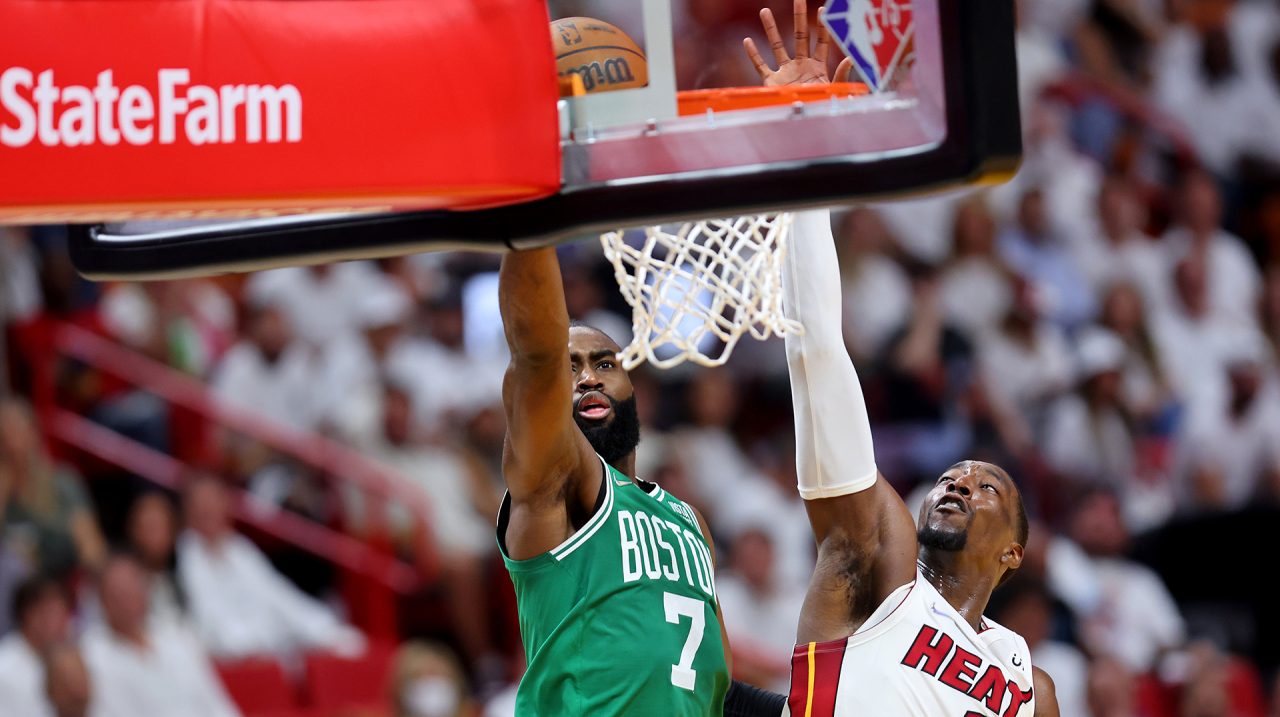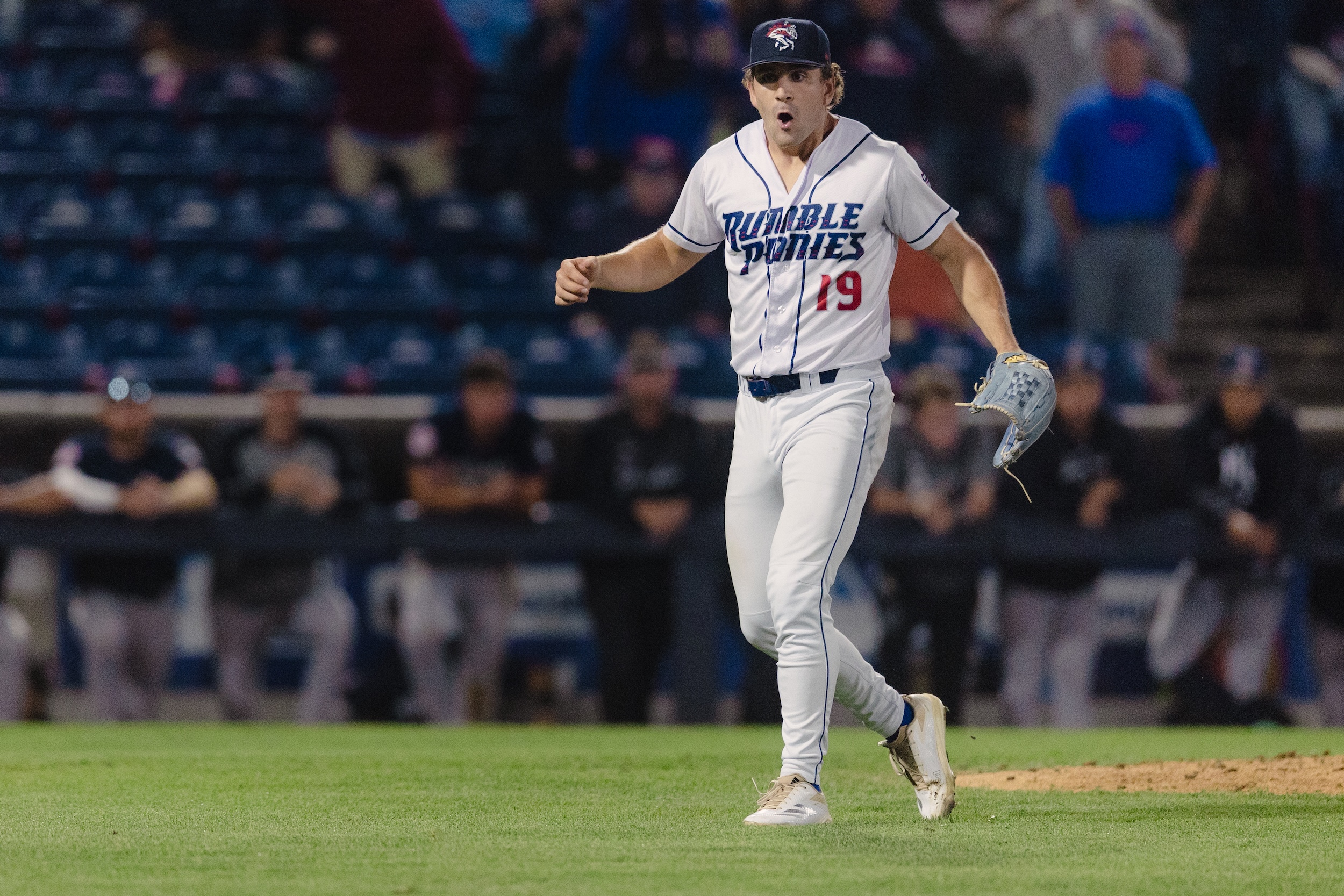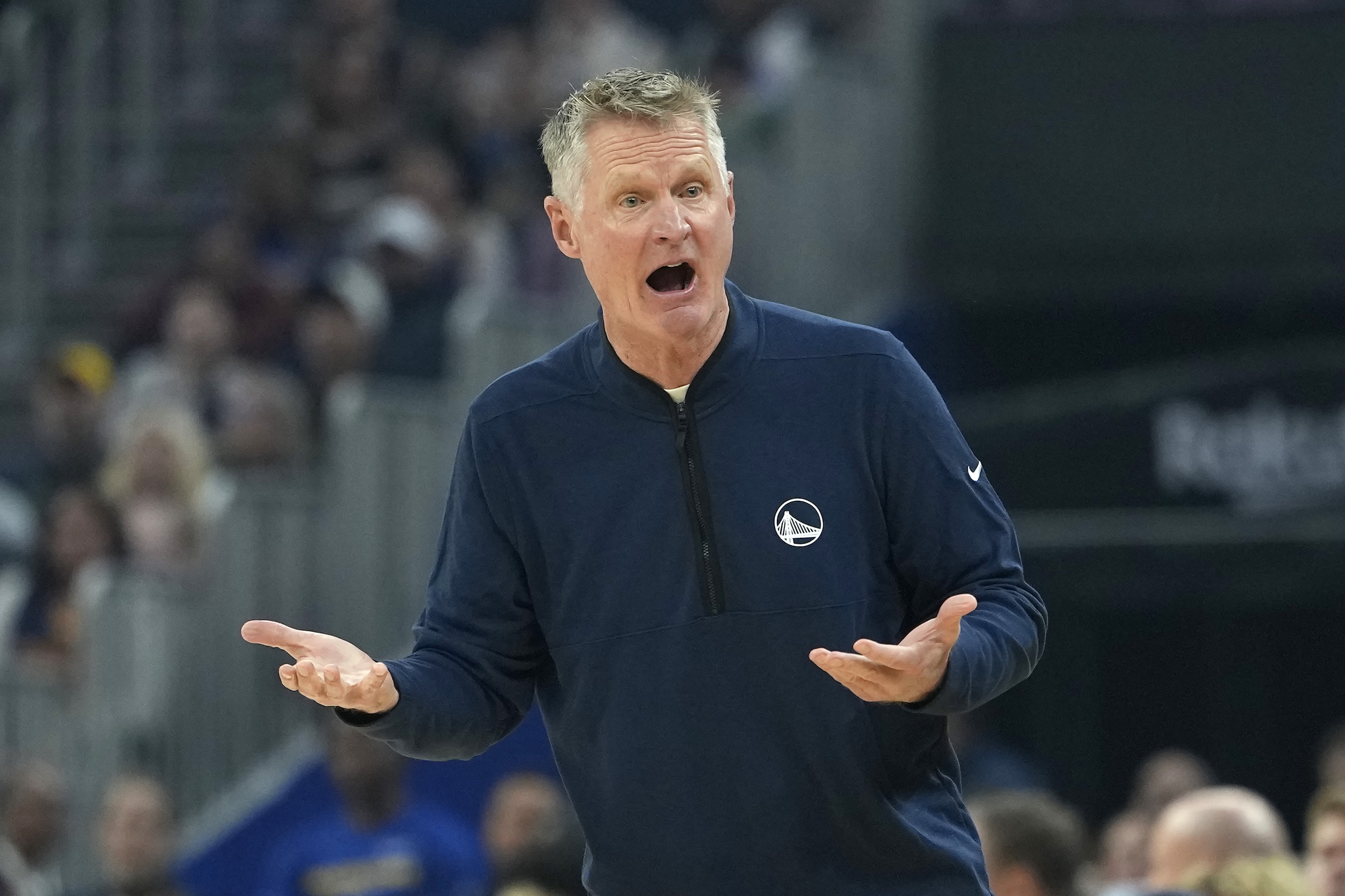The main point of analysis heading into the Eastern Conference Finals between the Miami Heat and the Boston Celtics was defense. That in itself was not unique, but the Heat and Celtics have two of the very best defenses in the NBA, and though both teams have players who can break down even the toughest opposition, it seemed likely that this series would turn on which team more successfully locked up the other. Heat coach Erik Spoelstra even said before Tuesday's Game 1 that he expected a "throwback" series in which neither team would score 130 points. The forecast was, and remains, a slugfest.
Throughout Game 1's first half, though, that Spoelstra quote looked particularly silly. His team got absolutely shredded by Boston's ability to get into the paint, and the slugfest was more of a shootout. In the opening 24 minutes, the Celtics scored 42 points in the paint, the second-highest playoff total since the NBA began tracking the stat a quarter century ago. Miami was lucky to enter the half down just eight after that barrage, and something had to change fast if the Heat were going to avoid a 1-0 deficit and the loss of home court advantage. The Heat have been the best third quarter team in these playoffs so far, but they'd need another strong dose of post-halftime dominance just to crawl back into the game. Thanks to their defense, they got it, and pulled away for a 118-107 win.
10 steals and tied our franchise playoff record with 12 blocks.
— Miami HEAT (@MiamiHEAT) May 18, 2022
Brought the clamps out for Game 1. pic.twitter.com/XEE1hOmzmX
Miami put up a 22-2 run to start the second half by suffocating Boston at every level. The Celtics shot just 2-for-15 in the third, their worst shooting performance in a quarter over the last four years. More striking was the fact that Boston turned the ball over eight times in that 12-minute period, which equaled the amount of turnovers they had in the rest of the game combined. Jayson Tatum, so deadly in the first half, accounted for six of those, with Miami capitalizing on some shockingly lazy and uncharacteristically imprecise play from the Celtics' best player. The Heat had 12 points off Boston turnovers, peaking with back-to-back steals for breakaway dunks:
Stripped, stolen, slammed 😤 pic.twitter.com/A3hiEhJL8E
— Miami HEAT (@MiamiHEAT) May 18, 2022
Y'all were asking for a lot of defensive plays. Here's another ⬇️ pic.twitter.com/3r7PBeAKCU
— Miami HEAT (@MiamiHEAT) May 18, 2022
The highlight of the third for Miami's defense came halfway through, as Bam Adebayo shook off a quiet first half on that end of the floor to chase down Jaylen Brown's layup and pin it directly between the backboard and the rim.
Feelin' a little deja vu with that Bam block 👀 pic.twitter.com/TnZPZhsr76
— Miami HEAT (@MiamiHEAT) May 18, 2022
That was one of Miami's season-high and playoff-record 12 blocks for the game, with Adebayo contributing four, Jimmy Butler three, and six-foot-three undrafted guard Gabe Vincent inexplicably adding three of his own. Adebayo's block was emblematic of the shift that occurred at half. Where the Celtics got whatever they wanted in the paint in the first half, Miami effectively made it off limits coming out of the half. The Heat forced Boston to put up 12 contested shots in the quarter. They made one.
Though Boston was feistier in the fourth quarter, bringing the lead down to single digits a couple of times after exiting the third down 17, a steady combination of Butler free throws—he was 17-of-18 for the game in what wound up being a 41-point effort—and some big shots from role players like Vincent, Victor Oladipo, and Max Strus kept the Heat comfortably ahead for the majority of the final frame. While Boston was missing two key players in Marcus Smart (right foot sprain, and also generally crabmeated) and Al Horford (COVID protocols), the type of all-around game that Miami played in the second half would be hard for any team to beat.
It's also something the Heat can replicate; as previously mentioned, they are the best third quarter team of the playoffs so far, and their offense is likely a bit better than it showed on Tuesday. For Boston to come back, they will first and foremost need Smart back on the floor, and in the form he's showed throughout these playoffs. It's hard to believe that the Celtics would have played with such laziness and nonchalance in the third if their green-haired hardass point guard was out there with them.
But the Celtics can't rely on Smart to fix all that ailed them on Tuesday. They will also need to figure out how to create more open looks than they managed in Game 1. Even in that dominant first half, Boston was aided by shooting a hard-to-sustain 15-of-28 on contested shots, and the team got a bigger offensive boost from a returning Robert Williams than it probably expected. The hyperactive big man scored 18 points and played some incredible defense of his own after missing the last four games of the Bucks series with a bruised knee. He walked off the floor gingerly in the fourth, which is more worrying for Boston in the long run than that third-quarter collapse.
Playoff series are slippery and ever-changing, and there's no reason to overreact to a Game 1 in which the home team first looked completely outmatched before completely flipping the script. If Boston was going to lose a game in this fashion, the first one was probably the one to lose; an 11-point loss away from the friendly confines of their own arena, with two of the team's best five or so players sidelined, is almost alright. But if the Celtics treat this loss with the overconfidence they displayed in the third quarter, they can expect a very similar result. The Heat, for their part, just did what they do. It's likely that it will get harder to score as these two teams figure each other out, but for the most important 12 minutes of Game 1, it looked like the Heat had jumped ahead of the learning curve. If the Celtics can't figure out how to counter, this series will be shorter than anyone expected.






